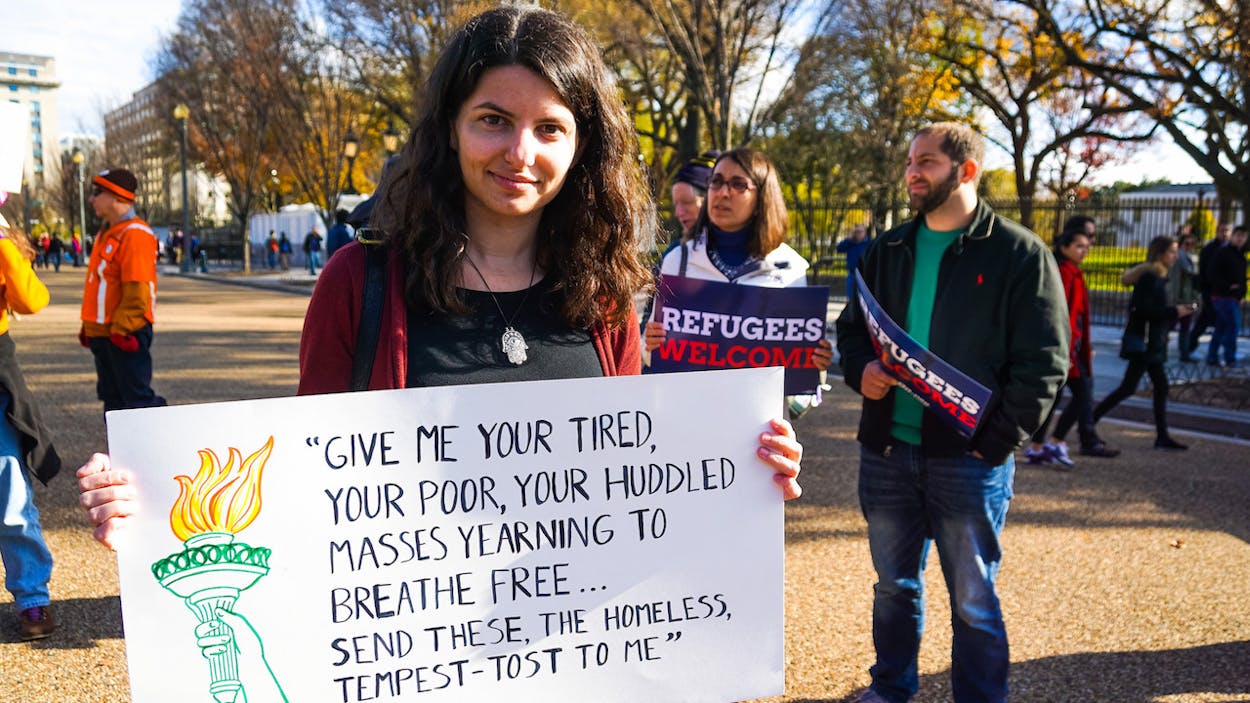In recent years, Texas has experienced something of an ideological crisis. The principles espoused by our leaders speak to small government and maximum liberty, but our statewide officeholders are happy to pass laws that dictate which freedoms said liberty applies to. The freedom of a community to decide if it wants to ban fracking was denied in May; a city’s right to decide which trees it wants to protect was a cause that Governor Greg Abbott spoke out about both during and after his campaign, as was the right of local leaders to determine if bans on single-use plastic bags were appropriate for their communities. This summer, the authority of agents of the state to deny gay people their constitutional right to freely marry their partners was explicated in a letter from Attorney General Ken Paxton. That doesn’t sound much like limited government to us.
Two separate proclamations from Greg Abbott brought all of this to the forefront this week as the governor made clear which freedoms he believed were best determined by the state of Texas, rather than by local leaders or religious groups.
At issue are two different topics: The right of local mayors to declare their city halls gun free, and the right of religious charities receiving state funding to provide aid to Syrian refugees.
We’ve seen the question of which venues are allowed to ban guns come up before. Earlier this fall, the question was whether the Houston Zoo—which sits on city-owned land, though it’s a private institution—was allowed to post a sign that declared that visitors were not allowed to enter if they were carrying firearms. (The zoo removed the sign in September, rather than face hefty fines while it was determined if the zoo’s educational component meant that it counted as a school, or if its status as an attraction meant that it counted as an amusement park, both of which are allowed to restrict guns on their premises.)
The laws with municipal buildings are similarly murky. Certain government buildings—courthouses, polling places, hospitals, schools, and airports among them—are allowed to ban guns, while city halls are not on that list. In Austin, however, the city hall does host court proceedings, and as the Houston Chronicle reports, Mayor Steve Adler intends to use that fact to maintain that the building itself is off limits.
“You don’t allow concealed guns in courthouses, and city hall hosts a downtown community court once a month,” Adler communications manager Jason Stanford said Monday. “You can’t have guns here unless you’re a cop.”
Abbott’s opinion, which he sent in a memo to Paxton, is that guns are only allowed to be banned in the room in Austin City Hall where the court is taking place, and only during court proceedings. (It may be worth noting that in other court buildings, the ban is in effect at all times and in all spaces.)
Abbott has also extended his reach to include religious leaders who have contracts with the state. Late last week, Abbott sent a letter to religious non-profits including Interfaith Ministries, Catholic Charities, and YMCA International services ordering them to stop providing aid to Syrian refugees in Texas. At risk, potentially, was federal funding that these agencies receive—enough money, according to KHOU, that it could “cut these organizations off at the knees.”
As the New Republic notes, the state of Texas ordering religious groups to stop providing services that their faith-based missions requires of them carries serious implications.
In Texas, most refugee services are carried out by private organizations that receive funding in the form of contracts from the state. This has been one of the ways, Moorhead said, that Texas has managed to put relatively little of its own tax revenue into social services. But many of these private organizations are faith-based, and their commitment to aiding refugees flows from their overall religious orientation. For that reason, the commission’s directive to suspend all aid to Syrian refugees struck several such faith-based charities as an infringement upon their free exercise of religion.
Syrian refugees’ position at the center of the debate on religious liberty shouldn’t be surprising. It’s the sort of topic that lends itself to political haymaking. And because Abbott—whether signing laws banning fracking bans, ordering local mayors to allow firearms into their city halls, or speaking out against municipalities’ right to ban single-use plastic bags—is keen on using government to enforce his ideals, we shouldn’t be surprised that the frontline of that issue is right here in Texas.








